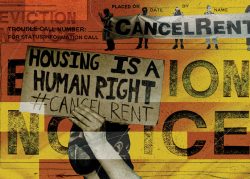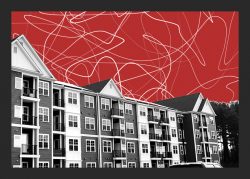When tenants use keyless entry systems, whether returning from work or a walk with Fido, property owners usually get a piece of their data. Nothing stops landlords from using that data however they want, but a bill passed Thursday by the City Council will change that.
The Tenant Data Privacy Act will prevent landlords from harassing or evicting tenants using data obtained through building entry systems.
Property owners of multiple dwellings that use this technology will have to get consent from tenants to use their data, and will be required to remove, anonymize or destroy the information no later than 90 days after a tenant moves out.
Violations of the legislation, which would take effect 120 days after the mayor signs it, are punishable by fines of up to $6,000 each.
The legislation balances a need for a reasonable use of advancements in keyless technologies so that tenants can feel safe, said the bill’s sponsor, Manhattan Democrat Mark Levine.
“Every tenant has the right to know what data is being collected by their landlords and should feel secure that that data can not be used against them,” he said in a statement.
Levine introduced the bill in October 2019 and gathered 27 co-sponsors as well as support from tenants rights advocates such as the Tenants Political Action Committee, which has fielded concerns about data privacy as traditional keys have been replaced with smart access technology over the years.
Tenants PAC treasurer Michael McKee said some tenants worry about landlords tracking them or their guests.
“I’m not saying that [smart access technology] is all wrong,” McKee said. “There are some advantages to these kinds of smart systems, but there needs to be some limits on the use landlords can use with the data.”
Read more


The bill will limit the data an entry system can keep to such details as tenants’ names, contact information, move-out date and parts of the building to which they have access. Authentication data can only be stored for 90 days unless it is anonymized.
The real estate industry supported the bill after winning some amendments to prevent unintended consequences.
During a hearing in October, the Real Estate Board of New York argued that the 90-day storage limit would make it difficult for property owners to crack down on short-term rentals, sublets and other illegal activity.
The board also pointed out that the bill would make it difficult for tenants to prove their rights and for landlords to dispute claims without information obtained from the fobs.
The bill was revised so property owners are not obligated to destroy information needed for security or stopping illegal activity.
The legislation adds that landlords cannot sell, lease or disclose the data unless it’s requested by a court or the tenant gives permission.
“Protecting the privacy of residents is an important part of providing safe housing and we appreciated the opportunity to work with Council member Levine on this effort,” Ryan Monell, REBNY’s director of city legislative affairs, said in a statement.
The City Council also approved an expansion of the Right to Counsel law. The bill, also sponsored by Levine, guarantees legal representation in Housing Court to low-income tenants citywide. It had been limited to 25 ZIP codes. The measure would kick in June 1.
